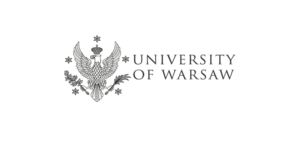How to Define RESILIENCE’s Future Impact?
RESILIENCE has the ambition to impact more than just the European religious studies community. However, how can we see to what extent the tools and services developed within the research infrastructure will support positive socio-political changes in Europe?
This is a question that defines the basic task of the team which examines the scope of RESILIENCE’s impact on various academic and social fields. To find a satisfying answer, the WP6 (Work Package 6) team led by the University of Warsaw is currently focusing on the following issues:
- Recipients. Which are the audiences who use the services and expertise provided by the research infrastructure? How do they use them? Such analysis will allow to define the effectiveness of mutual communication between various academic and non-academic communities.
- Infrastructure. To what extent does RESILIENCE meet the needs of its beneficiaries? The WP6 team aims to define the appropriate direction for infrastructure development. It checkc how the adopted solutions work in practice and how they can better meet the real needs not only of researchers but also of GLAM institutions, policy providers and others.
- Innovations in humanities. Analyses of RESILIENCE activities and their evaluation will allow not only to determine the direction of research infrastructure development, but also to better adapt to the diverse needs of both local and international research groups interested in religious studies. It is crucial to examine how the proposed services and solutions contribute to improving humanities research. In the first stage, the WP6 team identifies the fundamental problems of researchers in order to present positive changes and new challenges in the area of European humanities in the future.
RESILIENCE aims to create a modern, innovative environment for European researchers and others. One of the factors necessary to achieve this goal is self-awareness of the effectiveness of the actions taken. Therefore, the WP6 team plays an important role in setting the direction for the development of both the research infrastructure itself and the creation of effective future collaboration between academic and non-academic communities.
More about WP6
Read more here about the work of WP6.
– Sylwia Borowska-Kazimiruk
University of Warsaw
